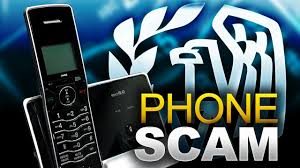When you send money or personal info to unfamiliar people, you increase your chances of becoming a victim. Therefore, the FBI offers some tips to help you recognize and avoid telemarketing fraud.
Recognize Telemarketing Fraud
Here are some warning signs of telemarketing fraud—what a caller may tell you:
- “Act ‘now’ or the offer won’t be good.”
- “You’ve won a ‘free’ gift, vacation, or prize.” But you have to pay for “postage and handling” or other charges.
- They say you must send money, give a credit card or bank account number, or have a check picked up by courier.
- “Don’t bother checking out the company with anyone.”
- “You don’t need any written information about the company or their references.”
- “Better not miss this ‘high-profit, no-risk’ offer.”
If you hear these or similar “lines” from a telephone salesperson, just say “no thank you” and hang up the telephone.
Tips To Avoid Telemarketing Fraud
It is very difficult to get your money back if you have been cheated over the telephone. So, before you buy anything by telephone, remember:
- Don’t buy from an unfamiliar company. Legitimate businesses understand that you want more information about their company.
- Always ask for and wait until you receive written material about any offer or charity.

- Always check out unfamiliar companies with your local consumer protection agency, Better Business Bureau, state attorney general.
- Obtain a salesperson’s name and contact info before you transact business. Also, verify the accuracy of these items.
- Find out what percentage of the money is paid in commissions and what percentage actually goes to the charity or investment that you are considering.
- Before you send money, ask yourself a simple question: “What guarantee do I really have?”
- Don’t pay in advance for services; pay only after they are delivered.
- Be wary of companies that want to send a messenger to your home to pick up money.
- Don’t pay for a “free prize.”

- If a caller tells you the payment is for taxes, he or she is violating federal law.
- Never respond to an offer you don’t understand thoroughly.
- Never send money or give out personal information such as credit card or bank info, dates of birth, or social security numbers to unfamiliar companies or unknown persons.
- Be wary of persons who call offering to help you recover your losses for a fee paid in advance.
- If you have information about a fraud, report it to state, local, or federal law enforcement agencies.
And last but not least, if an offer sounds too good to be true, it probably is. Hang up.
